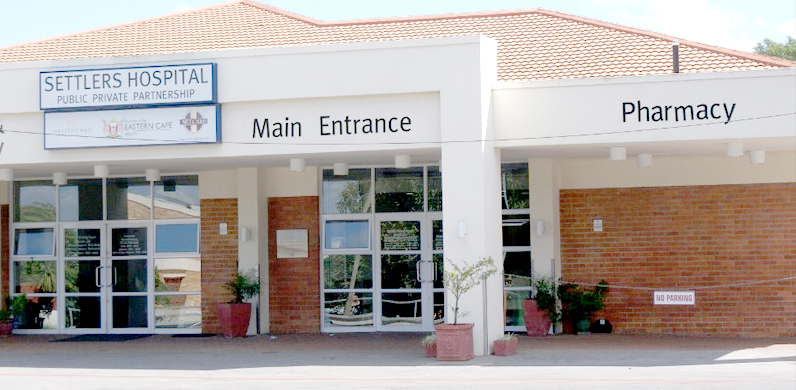The after-hours emergency theatre service at Settlers Hospital has resumed, management confirmed this week. Meanwhile, a report to a meeting in the City Hall this week stated that no after-hours emergency surgery had been referred to Port Alfred since management’s 1 April announcement. In addition, theatre nurses called to an emergency after-hours operation on 2 April at Settlers Hospital had responded and performed their professional duties.
“We can confirm that the after hours emergency theatre service at Settlers Hospital is now fully operational again,” Clinical Services Manager of Nalithemba Hospitals Nolene Ferreira told Grocott’s Mail in response to an emailed question.
Settlers Hospital is a public-private partnership under Nalithemba Hospitals, in turn managed by Netcare. Its operating theatres are owned by Netcare and staffed by professionals employed by the Department of Health.
Ferreira at the end of March 2018 informed doctors with Grahamstown practices that after-hours theatre services would no longer be provided at the hospital.
The letter said, “We have been informed by the consortium of Department of Health on-call theatre staff that they will not be available for after hour and weekend services until further notice, due to an unresolved dispute with the Department of Health. Nalithemba is not in a position to provide this service independently of the Department of Health staff allocated to theatre.”
Port Alfred Hospital theatre was available as a divert hospital for any private emergency theatre cases, Ferreira said.
Eastern Cape Department of Health spokesperson Sizwe Kupelo told Grocott’s Mail in response to questions about a reported labour dispute between theatre staff and the Department that it had been resolved. “The overtime payments fall under accruals which would be paid this month. The delay was due to the fact that we were ending the financial year,” Kupelo explained at the time.
Reports that theatre nurses had not in fact withheld their services since 1 April were confirmed by a senior source this week. “The nurses wanted a listening ear to their concerns, and they got it,” said the source who agreed to be quoted on condition of anonymity. Grocott’s Mail has not yet received a reply to a request for confirmation from the Department of Health of further reports that no cases were in fact diverted to Port Alfred during this period, and that called to an after-hours theatre emergency at Settlers on 2 April, theatre staff responded and performed their professional duties. No other after-hours theatre cases occurred during this period, the source said.
Meanwhile, a report to an intergovernmental forum at the city hall this week said that a National Core Standards assessment had revealed that 96% of complaints for 2017/18 had been resolved, with one still under investigation. A section on improved maternal and child health care stated that Settlers Hospital had been identified as a safe caesarian section site for Makana.
Challenges at the hospital included patients being admitted without IDs. This led to delays in crucial administrative processes.
Young mothers abandoning their newborn babies was becoming more common, the report stated.
The hospital had 166 useable public beds, with 236 staff. In a bid to improve its services, the hospital was in the process of recruiting a chief medical officer; one pharmacist; two operational managers; two general professional nurses; an admin clerk and a data capturer; five porters; five general assistants and two medical doctors.
Mayor Nomhle Gaga requested a report at a future meeting on the hospital’s plans for 2026, when the public-private partnership contract ends.
The Forum, to which all government departments and state owned entities operating in Makana were invited, also received reports from Sassa, the Department of Health’s Makana Subdistrict and the Department of Rural Development and Agrarian Reform.
The IGR, an initiative of the Mayor is, according to the invitation, intended to foster coordination and cooperation between entities involved in development within the Makana’s jurisdiction. “It is also intended to promote and facilitate cooperative decision-making and make sure that policies and activities across all spheres encourages service delivery and meets the needs of citizens in a collaborative and effective way,” the document says.


